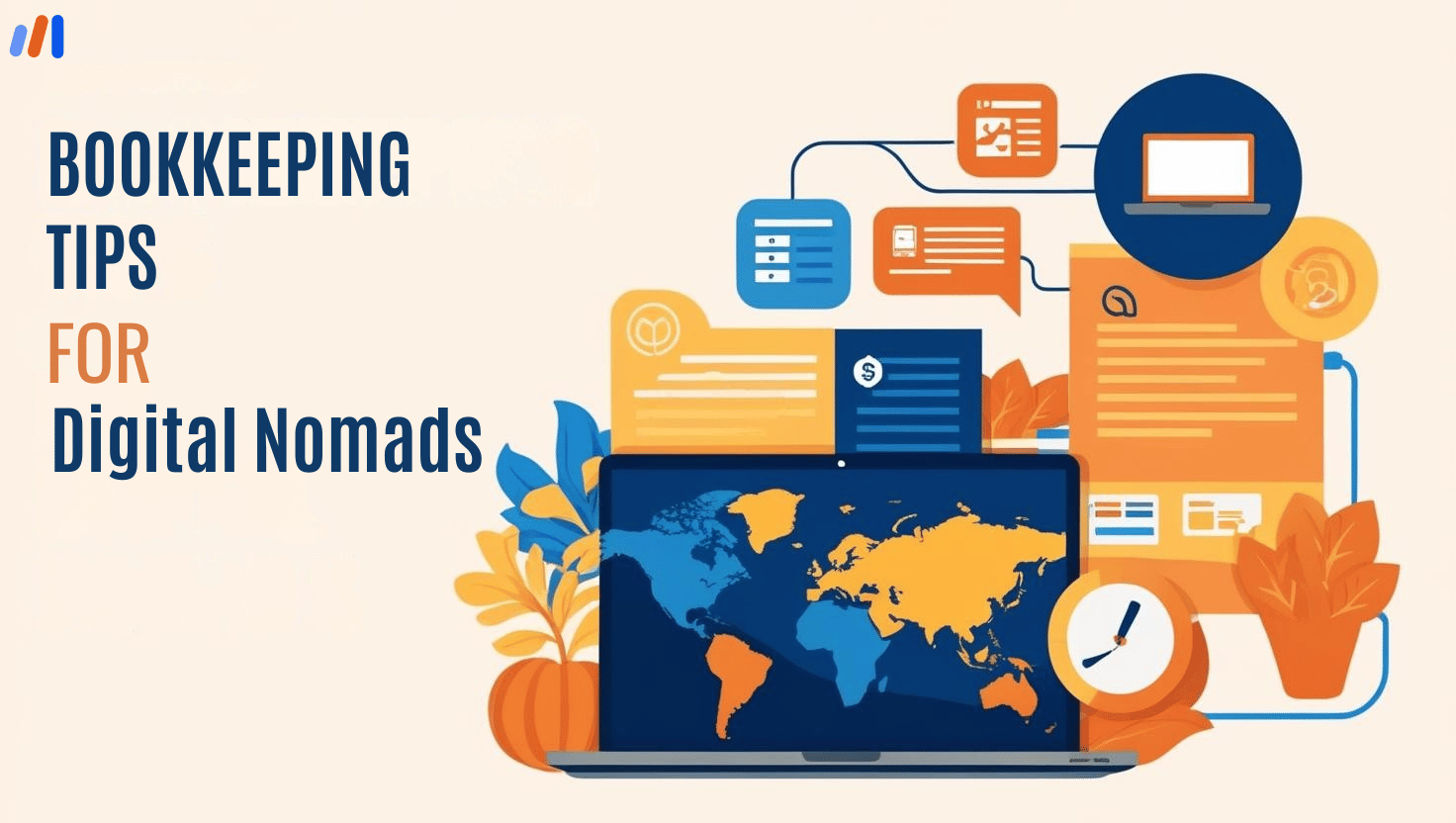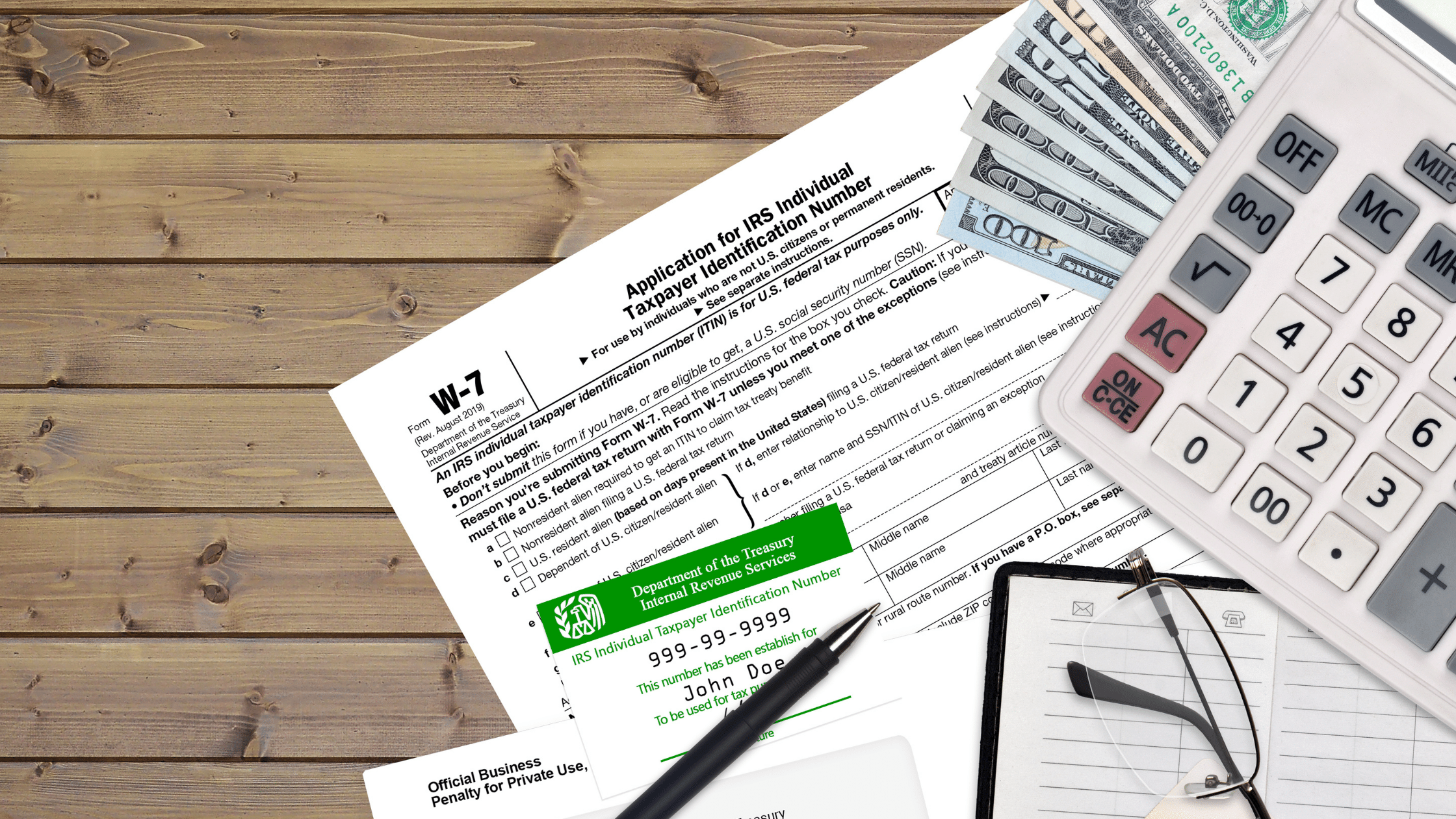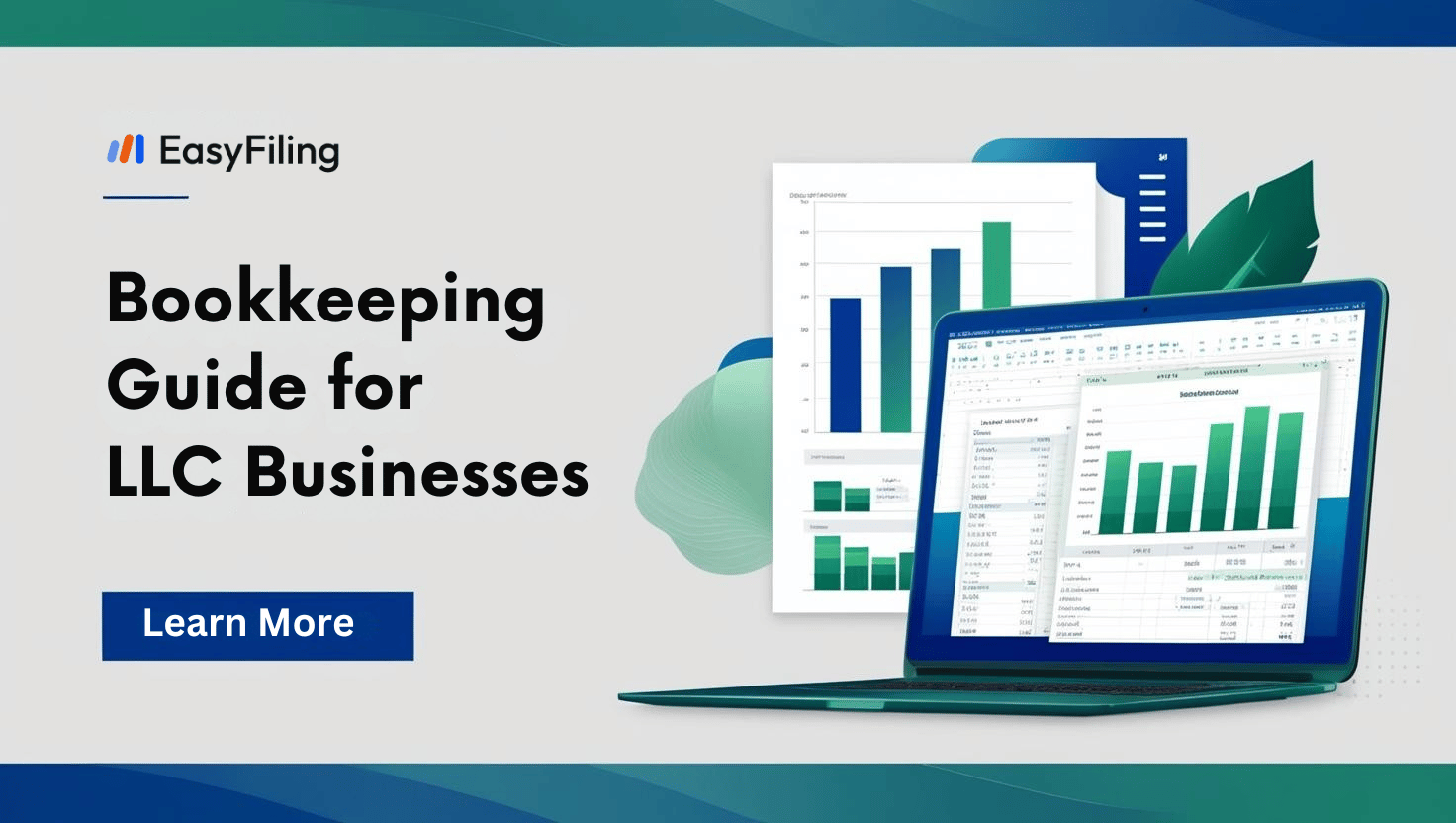The life of a digital nomad brings both exciting opportunities and unique challenges, especially in the area of bookkeeping.
Whether you’re a freelancer, an entrepreneur, or hold down various jobs, keeping your finances in order is a keystone of leading a successful and low-stress life.
Bookkeeping tips for Digital Nomads can help fellow nomads manage their finances effortlessly while traveling.
1. Choose the Right Accounting Software
One of the first steps to successful bookkeeping is choosing the right accounting software. It’s important to have tools that allow you to keep track of your income and expenses on the go.
Some popular options for digital nomads include EasyBooks, QuickBooks, Xero, and Wave. With these tools, you can:
- Track your expenses in real-time: With mobile bookkeeping solutions, you will always be in control of your business transactions in real time.
- Easily generate invoices and receipts on the move: Professional invoices can be prepared and sent to clients directly from your smartphone while you are out traveling.
- Managing multiple currencies: If you deal with international clients or are traveling to different countries, managing different currencies becomes essential. You can invoice and track expenses in different currencies with ease on most accounting software.
- Link it to your banking profile: Transactions are tracked without any manual efforts, thanks to automatic integration with your bank or payment systems like PayPal.
With mobile bookkeeping on the rise, a multitude of these platforms have dedicated apps which makes finance management much easier for a digital nomad who is always on the go.
2. Separate Personal and Business Finances
For digital nomads, having a distinction between personal and business finances can be critical, especially during tax periods. Open a business bank account and get a business credit card to spend on marketing and networking. This will allow you to:
- Accurately Track Business Expenses: Personal spending will ensure that come tax season there are no bogus expenses you’re demanding refunds for.
- Enhance tax filing efficiency: Separating certain accounts minimizes the missing deductions risk, making tax filing easier.
- Ease financial reporting: Businesses with separated accounts view greater clarity and ease when reporting finances and assessing the business’s health.
Even though some digital nomads may have shared banking accounts, it is always best practice to have a separate business account to keep clear financial expenses.
This is especially crucial for freelancers and solo entrepreneurs who have to closely monitor their profits, losses, and cash flow statements.
3. Track Expenses and Receipts
As a digital nomad, it’s not uncommon to travel to multiple countries and work from different co-working spaces. This ease of movement makes it hard to register all business-related expenses and receipts.
However, these receipts are crucial for taxation purposes and overall accountability. The best way to store receipts is to take photographs and save them in a cloud application so they can be organized later on. Expensify and Shoeboxed are examples of great expense-tracking applications.
Make sure to track these important expenses:
- Travel and accommodation: Track any expenses that revolve around traveling for business purposes. For example, flights, hotels, meals, and even local transportation.
- Business meals and entertainment: Business meals with clients or business-related functions should be taken into consideration. Remember to keep the receipts.
- Equipment and software subscriptions: Valid business expenses include laptops, cameras, and subscriptions to online tools such as design software and project management software.
- Internet and phone bills: Because you will depend significantly on the Internet, a portion of your bill may be considered a business expense.
- Co-working space fees: A lot of digital nomads work out of co-working or rent short-term offices. These expenses are tax deductible.
To make your tax filing and bookkeeping easier, keep a digital or physical folder for receipts and categorize expenses regularly.
4. Set Aside Money for Taxes
Tax planning is something that many digital nomads who work for companies in other countries fail to do. Nevertheless, you must set aside money for taxes in the resident country that you declare.
Most digital nomads will have a tax obligation in their home country, and depending on your situation, other countries will require tax filings as well.
Here’s what you should consider:
- Calculate your tax exposure: If you find yourself in multiple jurisdictions, use tax calculators or seek out a tax specialist.
- Open a tax savings account: Set aside an amount that you expect to be your tax liability in a separate savings account. This way when you have to file, you are not left with unfunded tax expenses.
- Quarterly Tax Payments: Self-employed people in certain countries are expected to make quarterly tax payments. Staying on top of this will help you avoid any penalties.
Working with a tax expert who knows the tax laws concerning remote work and foreign income is better. Services like Nomad Tax or Taxback that are designed for digital nomads and should be considered.
5. Understand Currency Exchange and International Payments
As a digital nomad, you will probably get paid in various currencies. Payment in various currencies is not the problem. Currency values change, and shielding yourself from that is important. International payment tools like TransferWise (best known as Wise), PayPal, and Revolut help understand currency exchanges.
These tools help assimilate payments by minimizing the trouble that comes with currency conversions while on the go.
Multi-Currency Accounts: Wise and Revolut are multi-currency accounts that ease the burden of having multiple accounts. You can now enjoy eliminated conversion fees when changing money between other accounts; now you can put the extra cash towards something else.
Payment Platforms: For fast and easy international payments PayPal, Stripe, and TransferWise are some to consider. Just like other platforms, they are famous for dealing with a variety of currencies while keeping their fees low. Other providers enable business clients to open special accounts that allow them to easily manage personal and business expenses in different currencies.
6. Outsource or Automate When Possible
Digital nomads tend to wear many hats, and this can result in bookkeeping being very tedious. If bookkeeping is consuming too much of your time, it is worth looking into outsourcing your bookkeeping to specialists who help remote workers or digital entrepreneurs.
Bookkeeping and other similar companies have a niche in offering bookkeeping services to digital nomads, simplifying the financial processes.
If outsourcing isn’t feasible, take advantage of automated tools for invoicing, expense tracking, and other operations. The week can be saved by taking the time to set up automated expense categorization and recurring invoices.
In particular, QuickBooks and Wave allow for invoice generation automation. Additionally, by linking accounting software to the business bank account, transactions can be automatically logged.
This helps reduce human error and guarantees that finances are current, with no gaps.
7. Regularly Review Your Financials
Regardless of where you are, from time to time checking your financial statements is necessary to ensure that every item is properly captured. Regular reviews help you:
- Eliminate excessive costs: Regularly reviewing your finances assists in identifying certain expenditures that can be minimized or eliminated.
- Logging goals progress: You must track your finances if you are building an emergency fund, planning for retirement, or simply setting money aside for a purchase.
- Make sure you are prepared for tax season: Tax filing will be easier if you review your finances frequently. With this practice, you will have an understanding of all your finances throughout the year.
Schedule at least a monthly session to review your finances, and catch any worrying issues early on instead of waiting for surprises at the end of the year. Adjust your expenses as necessary.
8. Plan for Retirement and Health Insurance
Digital nomads tend to overlook worrying about retirement savings or health insurance since they will not be undertaken by traditional employees and never worry about self-sufficiency. But being self-employed allows you to take measures to ensure your future along with maintaining your health.
If you are self-employed and make income within the U.S., consider setting up an IRA account. These accounts are beneficial for freelancers and remote workers because they save money on taxes.
Retirement Savings: Think about using Solo 401 (k)s or Roth IRA accounts for making investments that grow without being taxed.
Health insurance: Look into global health insurance plans, or for expatriates that will cover you regardless of your location. Digital nomads can benefit from the insurance offered by companies like SafetyWing and World Nomads. Make sure to choose a plan that covers everything. This includes medical emergencies, evacuation, and even repatriation.
9. Understand Local Tax Laws
Freelancers, when operating from various countries, may be bound to adhere to the local tax rules. Some countries are very relaxed regarding remote workers, while others have strict regulations concerning foreigners and their income.
Be sure to know the tax rules in every country you work in, where do you need to file, its deadlines, etc. Do not forget that places like Portugal, Estonia, and Georgia have digital nomad visas and great remote working tax-friendly policies.
Look at different digital nomad visas that will give you an edge with taxes, and countries that have tax treaties that will not subject you to double taxation. It is also necessary to consider the tax obligations of your country, as well as any other countries you may live or work.
10. Maintain a Simple Yet Effective System
Digital nomads have very limited time, and resources, therefore, they have to ensure that their bookkeeping is extremely simple. Focus on easy tasks that are manageable while traveling.
Try to use tools that are compatible with your smartphone or tablet which allows you to record transactions in real-time and access your financial reports anytime, anywhere.
Update records regularly, this would help reduce confusion and keep everything orderly. By creating a simple process for tracking income, expenses, and receipts you will greatly improve your bookkeeping system while ensuring your business complies with legal standards and stays profitable.
How EasyFiling Can Assist with Bookkeeping for Digital Nomads
EasyFiling understands that keeping track of receipts and expenditures is an uphill task for a digital nomad, but their unique solutions are purpose-built to tackle all these issues.
Unique Expense Book: No matter where you go, EasyFiling’s automated bookkeeping captures all your expenses and personalizes your books to suit your needs.
Tax Advisory Support: Quarterly filings and compliance in multiple countries can be challenging, but international tax laws are a breeze with their comprehensive strategies.
PayPal/Stripe Integration: Your funds can be managed through EasyFiling seamlessly as they make income tracking for PayPal and Stripe accounts effortless.
Mobile App: Keep your finances in check and access business records while on the go. The app continuously updates itself to ensure your business goals are met.
Compliance Services: The creation of your new LLC along with annual income reports, and all relevant compliance requests can be attended to while you work on your business.
Outsource EasyFiling’s bookkeeping service and do away with the time-consuming financial chores forever. The tax experts prepare monthly financial statements and help you take charge of your financial well-being.
Conclusion
Keeping accurate financial records is imperative to live a successful digital nomad lifestyle. However, choosing the right tools, staying organized, and having a clear plan will ensure that you always have your financial house in order wherever your work takes you.
These tips are especially appropriate for first-time travelers as well as during your enthusiastic accounting life on the move. They will help enable you to concentrate on your primary goals, work and travel.
By strategically embracing these tips, digital nomads across the globe can find joy in traveling without worrying about finances.
File Your LLC Today
25$ off with a coupon
Lock in EasyFiling's transparent rates and get lifetime compliance support at no extra cost.
Get Started Now








